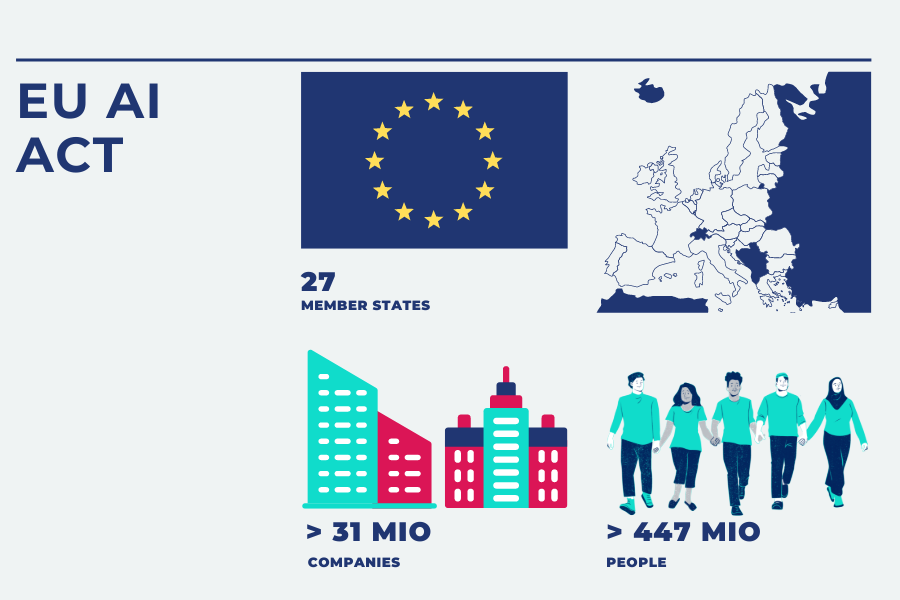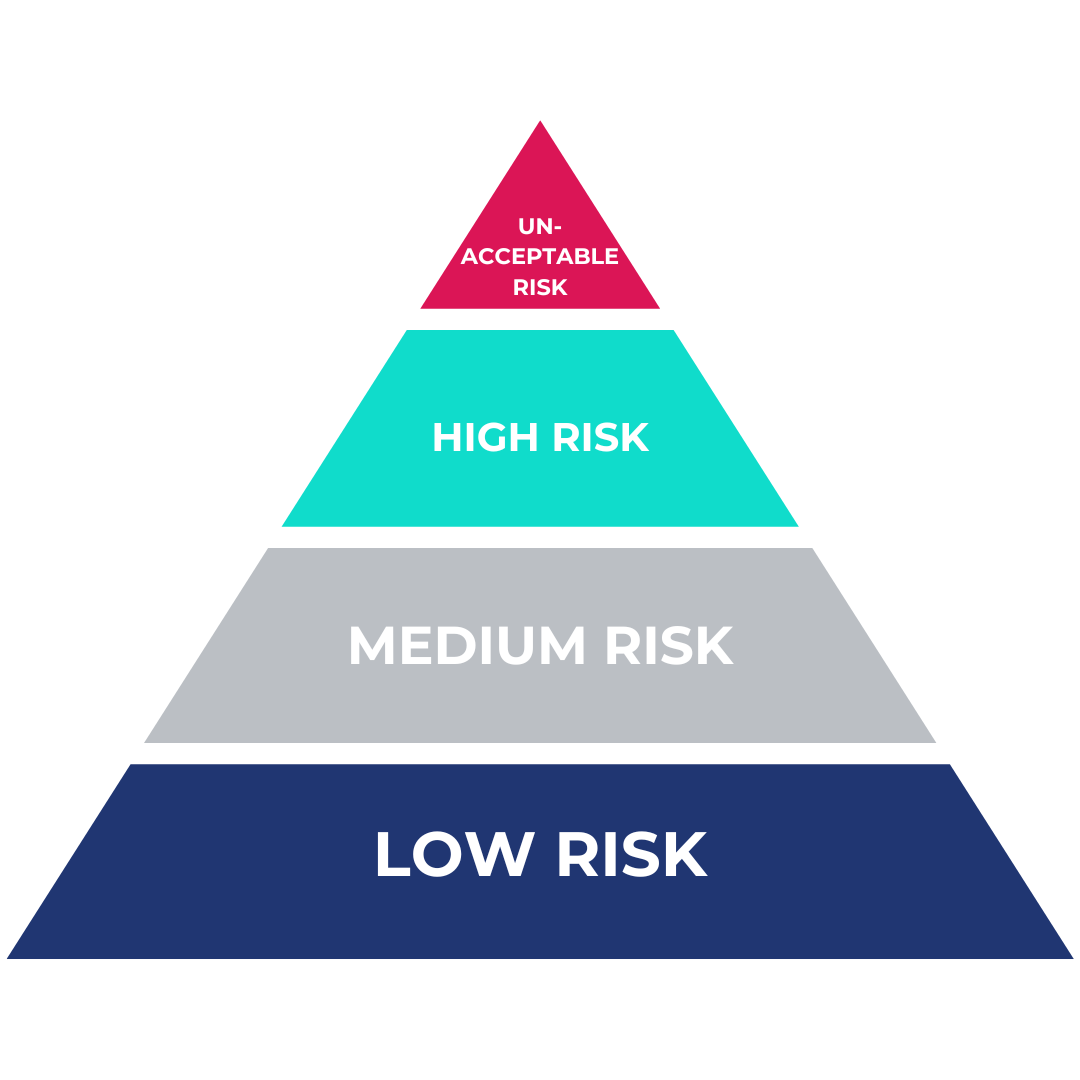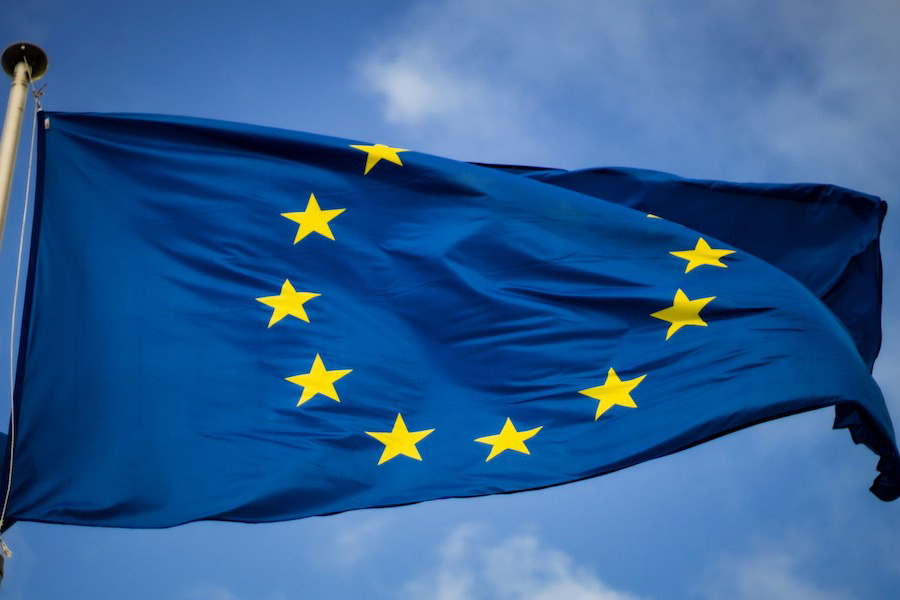Is the EU AI Act a clever move for our economy?
It seems that the U.S. are leading in AI innovation, while the EU is ahead in regulation. While the EU AI Act indeed is the first encompassing AI regulation, the U.S. government has issued an executive order, and states have passed laws. However, it’s true that they do not go as far or as wide as the EU’s AI Act.
The EU, like with data protection, aims to lead and set the tone for how companies targeting markets within the 27 EU member states, should behave.

Is the AI Act good news or bad?
It’s good that there are attempts to establish guidelines. But the devil is in the details. How the law is implemented, which standards are set, and how well it will fit with the technical innovations that are still to come will need to be observed.
Why are consequences for companies and users still not clear?
It depends on how the new rules are implemented. The EU is setting up a new institution, the AI Office. This will translate the law into industry standards together with authorities and private standard-setting organizations. This requires a lot of technical detail work. How well all this works will have to be observed. It’s clear that companies will face a lot of documentation work. For certain risk categories, for example, they must present plans on how they handle data.
Does this threaten the startup scene?
For startups and small businesses, this is a big effort.
The EU is aware of this and has promised to be more lenient with startups. But it’s hard to prevent some smaller players from being completely deterred by bureaucracy from starting a business at all. The medical device industry, for example, is already heavily regulated. The new law brings further requirements. For large companies with sufficient resources, it is a lesser problem to keep up with the new regulations. This can further strengthen their market power.
What are the implications for companies?
The AI Act has significant consequences for European companies and their users. There are numerous administrative obligations, including:
- efficient risk management
- ensuring quality
- providing (technical) documentation
- proactive communication
Ongoing monitoring and timely response in operations are also essential. Furthermore, the EU aims to support innovation through test labs operated by national authorities. These labs will develop and test AI before it is introduced.
The practical technical implementation, which the AI Act does not directly address, will also be a challenge and could involve significant costs. The vague requirements leave some questions open and can create uncertainties due to potential sanctions. At the same time, the general formulations give companies a certain degree of flexibility for their own design possibilities.

Next steps for companies
Your company should now consider the following:
- Are you already using AI or planning to do so?
- If yes: Is there an overview of the AI systems used in the company?
- Is there a strategy for using AI?
- Is there an internal policy for controlling AI that aligns with the guidelines of the EU AI Act? Have you appointed a special team for AI governance (“AI Governance”)?
- What function is assigned to AI systems in the company?
- Additionally, all companies should train their employees on AI (“AI Literacy”).
Does the bureaucracy benefit consumers?
In our view, stronger protection is a good thing for consumers, especially in the context of technologies that are spreading extremely fast. The crucial question will be whether the new regulations and the new system of standards and regulatory authorities will be efficient and effective in the broader ecosystem of laws.
Will consumers directly feel the rules? It’s often hard to say what a law has actually achieved.
When I board an airplane or undergo an MRI, I trust that these things are safe because there are institutions that take care of them. This should also be the case for critical AI products. Regulation must support those institutions that take care of them. For this, good regulations are needed: enforceable, lean, smart. I hope that the EU law will be implemented in this way. Because we want good technology to be developed.
If you have questions about using AI in marketing, our experts look forward to assisting you.




